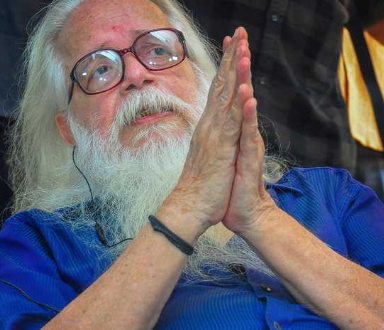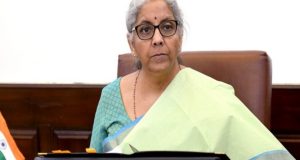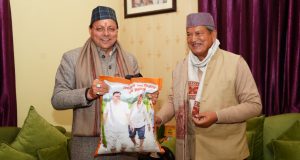DAINIK NATION BUREAU
The Supreme Court on Friday ordered the Kerala Government to pay within eight weeks a compensation of Rs 50 lakh to former ISRO scientist S Nambi Narayanan whose life got ruined after he was falsely implicated in the 1994 ISRO spy scandal.
A Bench headed by Chief Justice of India Dipak Misra set up a three-member panel “to find out ways and means to take appropriate steps against the erring (Kerala Police) officials.” The panel will have one officer each from the Centre and Kerala.
The Bench said the rocket scientist was free to file a civil suit against the state government to claim more compensation.
“The entire prosecution initiated by the state police was malicious and it has caused tremendous harassment and immeasurable anguish to the appellant, said the Bench which had reserved its verdict on July 10 on his petition seeking action against former Kerala DGP Siby Mathews and other police officers who allegedly falsely implicated him in the case.
“The liberty and dignity of the appellant which are basic to his human rights were jeopardized as he was taken into custody and, eventually, despite all the glory of the past, he was compelled to face cynical abhorrence,” the Bench said granting him compensation for “the suffering, anxiety and the treatment” meted out to him that withered away his fundamental right to life and liberty guaranteed under Article 21 of the Constitution.
Narayanan (76) had challenged a Kerala High Court verdict that said no action was needed against former DGP Mathews and two retired Superintendents of Police, K K Joshua and S Vijayan for his illegal arrest.
The Kerala Police had arrested Mariam Rasheeda — a Maldivian woman — on October 20, 1994, for overstaying in India after the expiry of her visa. It turned into a sex-spy scandal allegedly involving two senior ISRO scientists, some businessmen and others. They were accused of passing on ISRO’s cryogenic programme secrets to the women who in turn supplied the same to Russia and Pakistan’s ISI.
In 1996, the CBI probe cleared all the accused. It concluded that the entire scandal was fabricated by Kerala Police officers who had investigated the case. All the accused were discharged in May 1996. Along with the closure report, the CBI had also sent a confidential report indicting the state police officials.
But following a change of guard in Kerala, the state government withdrew the consent given to the CBI to probe the case and asked the state police to reinvestigate it.
However, the Supreme Court in April 1998 quashed the state government’s decision and all the accused were freed. Rasheeda too was released in 2001. The Kerala High Court had in September 2012 ordered the state government to pay Rs 10 lakh as interim relief to Narayanan.
Acting on his petition, the Kerala High Court had in October 2014 ordered action against the state police officials based on the CBI’s confidential report. But a Division Bench of the High Court reversed the order in March 2015.
It’s this Division Bench verdict that Narayanan has been fighting against in the top court.
It said, “…there can be no scintilla of doubt that the appellant, a successful scientist having national reputation, has been compelled to undergo immense humiliation. The lackadaisical attitude of the state police to arrest anyone and put him in police custody has made the appellant to suffer the ignominy.
“The dignity of a person gets shocked when psycho-pathological treatment is meted out to him. A human being cries for justice when he feels that the insensible act has crucified his self-respect. That warrants grant of compensation under the public law remedy, the top court said.
“The system I designed is being used in Chandrayaan, Mangalyaan and PSLV that launched 104 satellites in one go. But I am still fighting to get justice,” Narayanan had earlier told The Tribune during the hearing.TRIBUNE
 Dainik Nation News Portal
Dainik Nation News Portal




